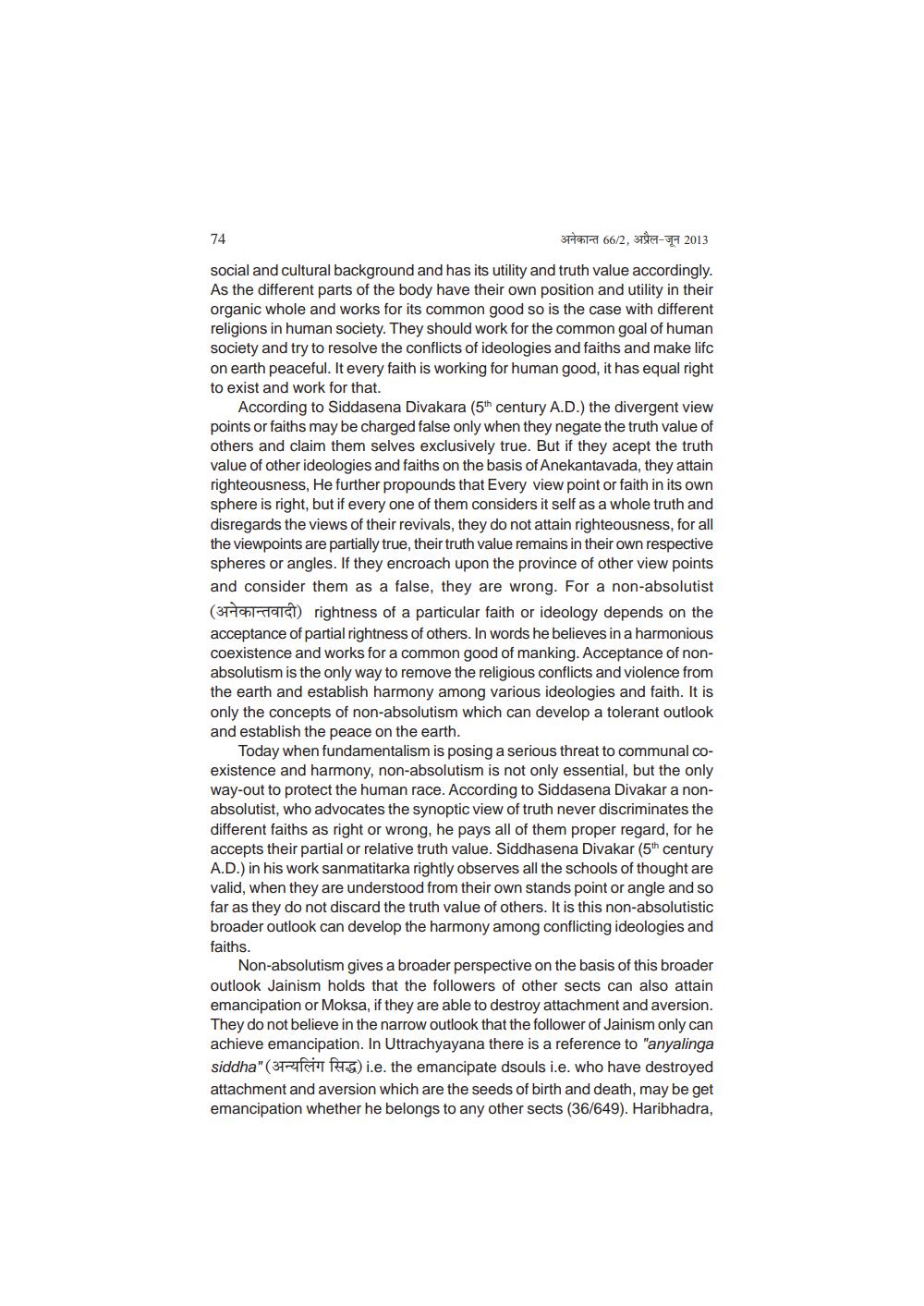________________
311-66/2, 90-TA 2013
social and cultural background and has its utility and truth value accordingly. As the different parts of the body have their own position and utility in their organic whole and works for its common good so is the case with different religions in human society. They should work for the common goal of human society and try to resolve the conflicts of ideologies and faiths and make lifc on earth peaceful. It every faith is working for human good, it has equal right to exist and work for that.
According to Siddasena Divakara (5th century A.D.) the divergent view points or faiths may be charged false only when they negate the truth value of others and claim them selves exclusively true. But if they acept the truth value of other ideologies and faiths on the basis of Anekantavada, they attain righteousness, He further propounds that Every view point or faith in its own sphere is right, but if every one of them considers it self as a whole truth and disregards the views of their revivals, they do not attain righteousness, for all the viewpoints are partially true, their truth value remains in their own respective spheres or angles. If they encroach upon the province of other view points and consider them as a false, they are wrong. For a non-absolutist (अनेकान्तवादी) rightness of a particular faith or ideology depends on the acceptance of partial rightness of others. In words he believes in a harmonious coexistence and works for a common good of manking. Acceptance of nonabsolutism is the only way to remove the religious conflicts and violence from the earth and establish harmony among various ideologies and faith. It is only the concepts of non-absolutism which can develop a tolerant outlook and establish the peace on the earth.
Today when fundamentalism is posing a serious threat to communal coexistence and harmony, non-absolutism is not only essential, but the only way-out to protect the human race. According to Siddasena Divakar a nonabsolutist, who advocates the synoptic view of truth never discriminates the different faiths as right or wrong, he pays all of them proper regard, for he accepts their partial or relative truth value. Siddhasena Divakar (5th century A.D.) in his work sanmatitarka rightly observes all the schools of thought are valid, when they are understood from their own stands point or angle and so far as they do not discard the truth value of others. It is this non-absolutistic broader outlook can develop the harmony among conflicting ideologies and faiths.
Non-absolutism gives a broader perspective on the basis of this broader outlook Jainism holds that the followers of other sects can also attain emancipation or Moksa, if they are able to destroy attachment and aversion. They do not believe in the narrow outlook that the follower of Jainism only can achieve emancipation. In Uttrachyayana there is a reference to "anyalinga siddha"(Triin 16) i.e. the emancipate dsouls i.e. who have destroyed attachment and aversion which are the seeds of birth and death, may be get emancipation whether he belongs to any other sects (36/649). Haribhadra,




